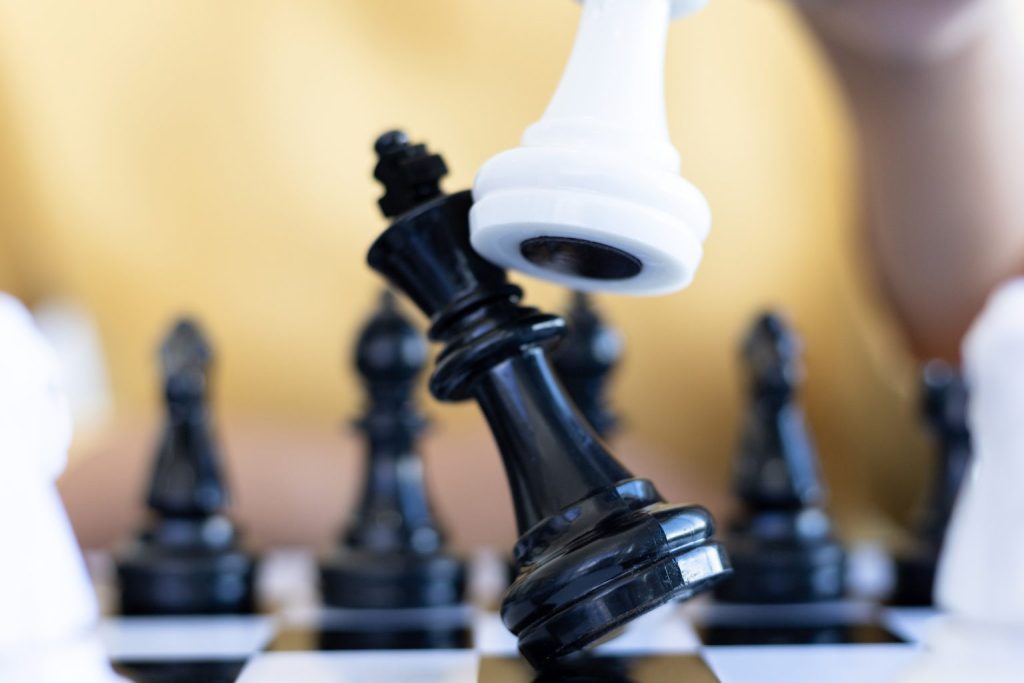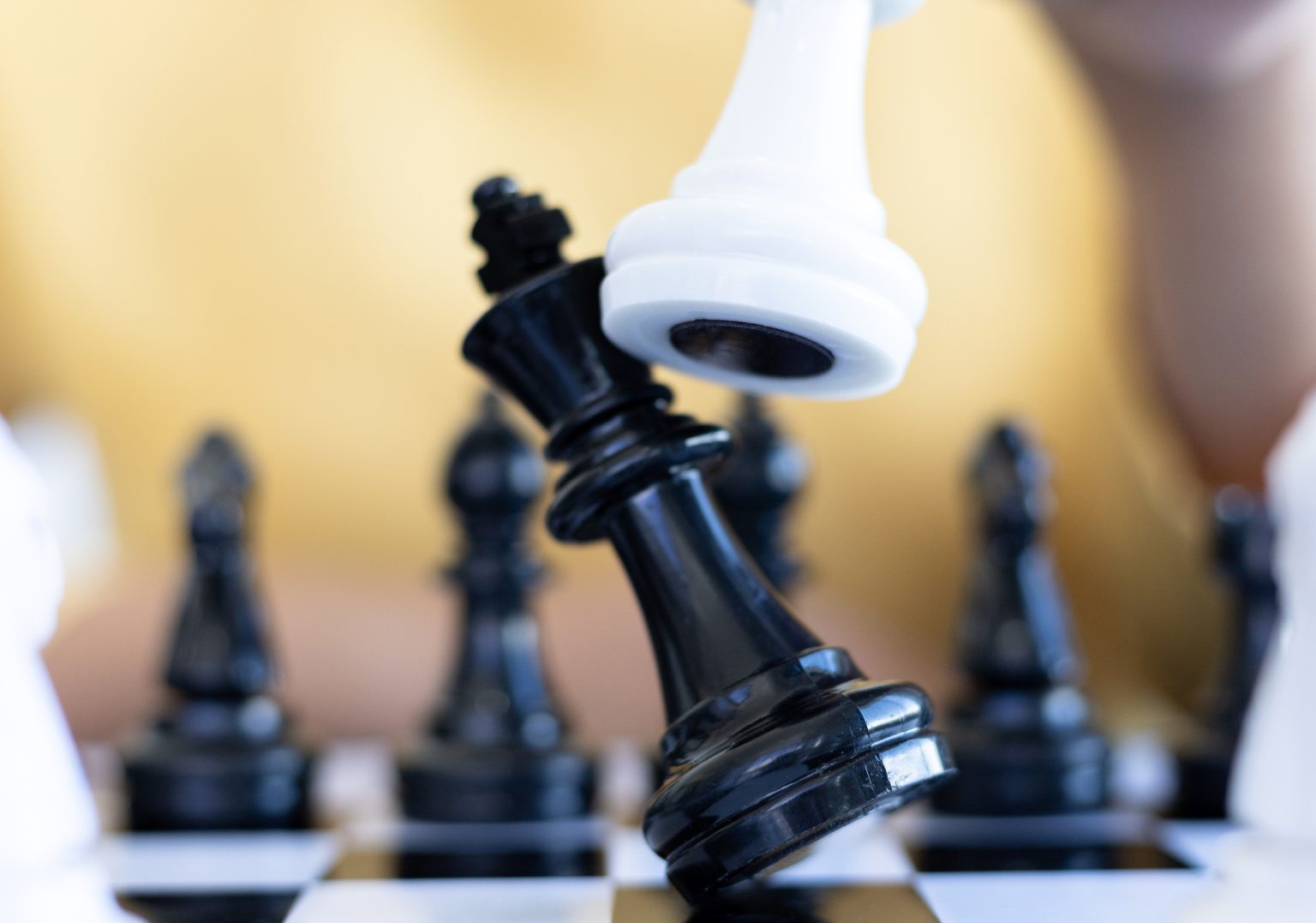Chess Make your IQ Level Higher
Playing Chess is an excellent way to improve your mental acuity. This ancient game has increased problem-solving skills, memory, and analytical thinking ability. Not only do these skills help you in everyday life, but they can also increase your IQ level.
Chess requires strategy and planning, which forces the brain to think ahead and anticipate the opponent’s moves. As you become more comfortable playing Chess, your IQ level will naturally rise as your cognitive abilities sharpen.
Playing Chess Reduces ADHD Symptoms
Chess is more than just a game; it has the power to improve mental health. Recent studies have shown that playing Chess can help reduce symptoms of ADHD in children and adults alike.
Chess encourages strategic thinking, problem-solving, and focus, all of which benefit individuals with ADHD. Furthermore, the social aspect of Chess can help improve communication skills and build relationships.
With its therapeutic potential, Chess is becoming an increasingly popular tool for managing ADHD symptoms.
Chess Helps in Cognitive Development

Chess is a game that has been around for centuries, and it has been studied extensively by scientists and researchers.
It is believed to have multiple benefits for cognitive development, especially in children. Chess helps with problem-solving, analytical thinking, strategic planning, decision-making, and creativity.
Furthermore, studies suggest that playing Chess can help increase IQ scores in both adults and children. Therefore, Chess is an excellent way to help stimulate the mind and improve cognitive skills.
Chess Increases Concentration and Memory
Chess is not just a game; it is a great way to improve your concentration and memory. It is an ancient game that has been around for centuries and is still popular today. Chess requires you to think strategically and plan, which helps to improve your focus and mental acuity.
By playing Chess regularly, you can also increase your memory capacity and learn how to analyze various scenarios better. With its proven track record of helping people improve their cognitive skills, Chess can be an effective way to sharpen your mind.
Chess Reduces the risk of Dementia
Chess is not just a game of strategy and skill; it can also be used to reduce the risk of developing Dementia. Studies have shown that playing Chess can help improve cognitive function and memory while reducing the risk of age-related degenerative diseases.
With its ability to engage both the mind and body, Chess provides an activity that can be enjoyed at any age, helping to keep your brain sharp as you age.
Chess Teaches Problem-Solving Skills
Chess is a potent tool to teach problem-solving skills. Players must analyze situations, plan, and make strategic decisions to win. The game also teaches players about persistence, patience, and resilience as they strive for success through various challenges.
With its ability to engage players of all ages and abilities from all around the world, Chess offers an exciting way to learn how to think critically and solve problems.
Chess Develops Grit and Resilience
Chess is more than just a game of strategy; it’s also an excellent tool for developing grit and resilience. Chess encourages players to think long-term and anticipate their opponent’s moves.
The game requires patience, calculated risk-taking, and the ability to adjust strategies in the face of failure.By playing Chess, people can learn valuable lessons about problem-solving, perseverance, and resilience that will help them in all areas of life.
Chess Encourages Sportsmanship
Chess is a game of strategy, intelligence, and sportsmanship. Players learn to think strategically and outmaneuver their opponents while also understanding the importance of good sportsmanship.
It provides an opportunity for players to interact with each other in a respectful and friendly way. Chess encourages players to respect their opponent’s moves, take responsibility for mistakes, and stay focused during play. The game also teaches essential problem-solving and decision-making lessons that can be applied to any situation.
Patience is a Game! Chess Increases Patience
Chess is often seen as a game of strategy, but it can also be an excellent tool for learning patience. By practicing Chess regularly, players can improve their ability to think carefully and make decisions with measured consideration.
Not only does this help in the game itself, but it also helps in life by allowing players to practice being more patient while dealing with difficult situations. It teaches that taking time to think things through and make well-considered decisions is often the best course of action.

Chess Encourages Rational Thinking
Chess is an ancient game with a unique ability to challenge and sharpen the mind. Learning to play Chess encourages rational thinking, as it requires players to consider every move from multiple perspectives.
Through careful analysis of the board and all potential outcomes, this game teaches players how to think logically and make informed decisions.
Additionally, Chess can improve problem-solving skills and help develop strategic planning methods that can be applied in any situation.
Chess Better Information Processing
Chess is a game of strategy and skill, requiring players to think ahead and anticipate their opponent’s moves. Now, with the help of artificial intelligence, chess players can find better ways to process information and make more informed decisions.
AI-assisted chess programs have been developed to analyze the board position and provide valuable insights into possible moves and strategies. With this new technology, chess players can benefit from improved decision-making capabilities that will help them win more games.
Chess Spirit of Competitiveness
Chess has been a beloved game for centuries, but what makes it unique? The spirit of competition that Chess brings out in its players is truly remarkable and inspiring. With each move, players must anticipate the opponent’s next move and make their moves accordingly.
This type of strategic thinking can be applied to everyday life scenarios and help people become more successful and confident in their decisions. Moreover, the thrill of victory or disappointment of defeat makes playing Chess an unforgettable experience that encourages people to strive for excellence.
Logical and Creative Thinking
Chess is more than just a game – it is a tool for developing logical and creative thinking. By playing Chess, players learn to think strategically and plan moves to achieve the desired objectives.
It also encourages creative problem-solving and teaches players how to think outside the box. Chess is an excellent way for people of all ages and backgrounds to improve their mental acuity and develop critical thinking skills.

Think Strategically. Play Confidently! Chess Boost Confidence
Chess is known to be a game of strategy and skill, but it can also be a great way to boost your confidence. Playing Chess requires deep concentration and critical thinking, which helps improve analytical skills and mental agility. Chess can also help build self-esteem and self-discipline by teaching players the importance of making thoughtful decisions.
With strategic planning and practice, you can gain confidence in your ability to succeed at any challenge life throws.
Conclusion
Playing chess has numerous benefits for people’s mental and emotional health, both inside and outside the game. Not only does it aid in recovery from physical ailments, but it also strengthens mental health. So, whether a hobbyist or an expert, use these benefits to encourage yourself to play chess daily. Unexpected physical and mental benefits can be expected when you play chess. Visit Delighted Champs to learn how to improve your skills and reap the rewards of this exciting & intellectually stimulating game.




